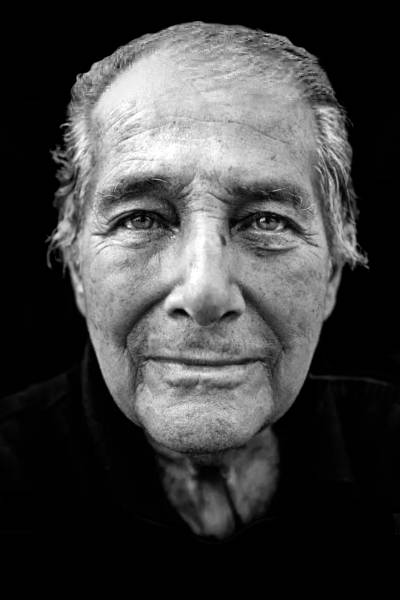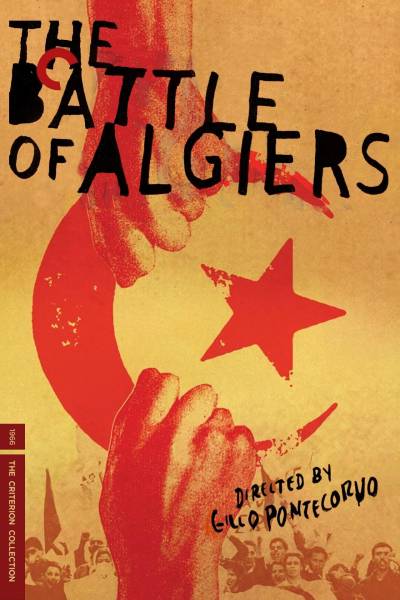Fiche Personne
Cinéma/TV
Gillo Pontecorvo, né le 19 novembre 1919 à Pise et mort le 12 octobre 2006 à Rome, est un cinéaste italien. D'origine juive italienne, Gillo Pontecorvo est le frère de Bruno Pontecorvo, physicien nucléaire travaillant pour l'URSS, et de Guido Pontecorvo, généticien italo-britannique, ainsi que le petit-fils de l'industriel juif Pellegrino Pontecorvo. Il a trois fils : Marco (directeur de la photographie et réalisateur), Simone (peintre) et Ludovico (physicien).
Chimiste de formation, il se tourne rapidement vers le journalisme et devient correspondant à Paris de plusieurs publications italiennes. En 1941, il rejoint le Parti communiste italien(PCI), et participe à des activités antifascistes dans le nord de l'Italie. Après la répression soviétique de l'insurrection de Budapest en 1956, il rompt avec le PCI, tout en continuant à se réclamer du marxisme. Il débute au cinéma après la Seconde Guerre mondiale comme assistant d'Yves Allégret1 et Mario Monicelli notamment. À partir de 1953, il réalise ses premiers essais documentaires (Giovanna, MM, 1956). En 1956, il contribue à un épisode de la Rose des vents (Die Windrose), supervisé par Alberto Cavalcanti.
L'année suivante, il dirige son premier long métrage, Un dénommé Squarcio (La grande strada azzurra, produit par Maleno Malenotti , d'après un roman de Franco Solinas). Puis il décrit l'univers concentrationnaire dans le film Kapò (1960), histoire d'une juive qui devient l'auxiliaire des nazis. Le film est nommé à l'Oscar du meilleur film en langue étrangère en 1961. Il donnera lieu à une célèbre polémique sur le « travelling de Kapò », que Jacques Rivette avait jugé indigne dans un article des Cahiers du cinéma intitulé « De l’abjection ». En 1966, il met en scène son film le plus important, La Bataille d'Alger (La Battaglia di Algeri), reconstitution de l'action policière de l'armée française pendant la bataille d'Alger qui est un épisode fondamental de la guerre d'Algérie. Ce film est récompensé par le Lion d'Or du Festival de Venise, mais demeure longtemps interdit en France et son exploitation provoque de nombreux remous lié au scènes de tortures commises par l'armée française. Dans Queimada (1969), dominé par l'interprétation de Marlon Brando, il s'attaque à nouveau au colonialisme, avec une évocation de la révolution haïtienne au début du XIXe siècle. Face à l'échec commercial de Queimada, Pontecorvo cesse de faire des films. Il réalise quand même un film secondaire, Opération Ogre (Ogro, 1979), sur l'assassinat de Luis Carrero Blanco par l'ETA pendant le franquisme, et collabore au film L'addio a Enrico Berlinguer (1984).
En 1992, il est nommé directeur du festival de Venise. En 1993, durant la 50e édition de la Mostra, Pontecorvo remet à Steven Spielberg un Lion d'or d'honneur, au moment de la sortie de La Liste de Schindler. Il décède le 12 octobre 2006, à l'âge de 86 ans, à Rome en Italie.
<iframe width="560" height="315" src="https://www.youtube.com/embed/dUO-0BQYxv8?si=gk2SY3oyj4k7Lvaw" title="YouTube video player" frameborder="0" allow="accelerometer; autoplay; clipboard-write; encrypted-media; gyroscope; picture-in-picture; web-share" allowfullscreen></iframe>
http://www.imdb.com/name/nm0690597
Gillo Pontecorvo, born November 19, 1919 in Pisa and died October 12, 2006 in Rome, is an Italian filmmaker. Of Italian Jewish origin, Gillou Pontecorvo is the brother of Bruno Pontecorvo, a nuclear physicist working for the USSR, and Guido Pontecorvo, an Italian-British geneticist, as well as the grandson of the Jewish industrialist Pellegrino Pontecorvo. He has three sons: Marco (cinematographer and director), Simone (painter) and Ludovico (physicist).
A chemist by training, he quickly turned to journalism and became correspondent in Paris for several Italian publications. In 1941, he joined the Italian Communist Party (PCI), and participated in anti-fascist activities in northern Italy. After the Soviet repression of the Budapest uprising in 1956, he broke with the PCI, while continuing to claim Marxism. He started in cinema after the Second World War as assistant to Yves Allégret1 and Mario Monicelli in particular. From 1953, he produced his first documentary essays (Giovanna, MM, 1956). In 1956, he contributed to an episode of Die Windrose, supervised by Alberto Cavalcanti.
The following year, he directed his first feature film, A Called Squarcio (La grande strada azzurra, produced by Maleno Malenotti, based on a novel by Franco Solinas). Then he describes the concentration camp world in the film Kapò (1960), the story of a Jewish woman who becomes an auxiliary of the Nazis. The film was nominated for an Oscar for best foreign language film in 1961. It gave rise to a famous controversy over the "Kapò tracking shot", which Jacques Rivette had deemed unworthy in an article in Cahiers du cinéma entitled "De l' abjection.” In 1966, he directed his most important film, The Battle of Algiers (La Battaglia di Algeri), a reconstruction of the police action of the French army during the Battle of Algiers which was a fundamental episode of the war. from Algeria. This film was awarded the Golden Lion at the Venice Festival, but remained banned in France for a long time and its exploitation caused a lot of uproar linked to the scenes of torture committed by the French army. In Queimada (1969), dominated by the interpretation of Marlon Brando, he once again attacks colonialism, with an evocation of the Haitian revolution at the beginning of the 19th century. Faced with the commercial failure of Queimada, Pontecorvo stopped making films. He still directed a secondary film, Operation Ogre (Ogro, 1979), on the assassination of Luis Carrero Blanco by ETA during Francoism, and collaborated on the film L'addio a Enrico Berlinguer (1984).
In 1992, he was appointed director of the Venice Film Festival. In 1993, during the 50th edition of the Mostra, Pontecorvo presented Steven Spielberg with an honorary Golden Lion, at the time of the release of Schindler's List. He died on October 12, 2006, at the age of 86, in Rome, Italy.
<iframe width="560" height="315" src="https://www.youtube.com/embed/dUO-0BQYxv8?si=gk2SY3oyj4k7Lvaw" title="YouTube video player" frameborder="0" allow="accelerometer; autoplay; clipboard-write; encrypted-media; gyroscope; picture-in-picture; web-share" allowfullscreen></iframe>
http://www.imdb.com/name/nm0690597
Gillo Pontecorvo
Réalisateur/trice, Acteur/trice, Scénariste
(Homme)
Italie
Français
Gillo Pontecorvo, né le 19 novembre 1919 à Pise et mort le 12 octobre 2006 à Rome, est un cinéaste italien. D'origine juive italienne, Gillo Pontecorvo est le frère de Bruno Pontecorvo, physicien nucléaire travaillant pour l'URSS, et de Guido Pontecorvo, généticien italo-britannique, ainsi que le petit-fils de l'industriel juif Pellegrino Pontecorvo. Il a trois fils : Marco (directeur de la photographie et réalisateur), Simone (peintre) et Ludovico (physicien).
Chimiste de formation, il se tourne rapidement vers le journalisme et devient correspondant à Paris de plusieurs publications italiennes. En 1941, il rejoint le Parti communiste italien(PCI), et participe à des activités antifascistes dans le nord de l'Italie. Après la répression soviétique de l'insurrection de Budapest en 1956, il rompt avec le PCI, tout en continuant à se réclamer du marxisme. Il débute au cinéma après la Seconde Guerre mondiale comme assistant d'Yves Allégret1 et Mario Monicelli notamment. À partir de 1953, il réalise ses premiers essais documentaires (Giovanna, MM, 1956). En 1956, il contribue à un épisode de la Rose des vents (Die Windrose), supervisé par Alberto Cavalcanti.
L'année suivante, il dirige son premier long métrage, Un dénommé Squarcio (La grande strada azzurra, produit par Maleno Malenotti , d'après un roman de Franco Solinas). Puis il décrit l'univers concentrationnaire dans le film Kapò (1960), histoire d'une juive qui devient l'auxiliaire des nazis. Le film est nommé à l'Oscar du meilleur film en langue étrangère en 1961. Il donnera lieu à une célèbre polémique sur le « travelling de Kapò », que Jacques Rivette avait jugé indigne dans un article des Cahiers du cinéma intitulé « De l’abjection ». En 1966, il met en scène son film le plus important, La Bataille d'Alger (La Battaglia di Algeri), reconstitution de l'action policière de l'armée française pendant la bataille d'Alger qui est un épisode fondamental de la guerre d'Algérie. Ce film est récompensé par le Lion d'Or du Festival de Venise, mais demeure longtemps interdit en France et son exploitation provoque de nombreux remous lié au scènes de tortures commises par l'armée française. Dans Queimada (1969), dominé par l'interprétation de Marlon Brando, il s'attaque à nouveau au colonialisme, avec une évocation de la révolution haïtienne au début du XIXe siècle. Face à l'échec commercial de Queimada, Pontecorvo cesse de faire des films. Il réalise quand même un film secondaire, Opération Ogre (Ogro, 1979), sur l'assassinat de Luis Carrero Blanco par l'ETA pendant le franquisme, et collabore au film L'addio a Enrico Berlinguer (1984).
En 1992, il est nommé directeur du festival de Venise. En 1993, durant la 50e édition de la Mostra, Pontecorvo remet à Steven Spielberg un Lion d'or d'honneur, au moment de la sortie de La Liste de Schindler. Il décède le 12 octobre 2006, à l'âge de 86 ans, à Rome en Italie.
<iframe width="560" height="315" src="https://www.youtube.com/embed/dUO-0BQYxv8?si=gk2SY3oyj4k7Lvaw" title="YouTube video player" frameborder="0" allow="accelerometer; autoplay; clipboard-write; encrypted-media; gyroscope; picture-in-picture; web-share" allowfullscreen></iframe>
http://www.imdb.com/name/nm0690597
English
Gillo Pontecorvo, born November 19, 1919 in Pisa and died October 12, 2006 in Rome, is an Italian filmmaker. Of Italian Jewish origin, Gillou Pontecorvo is the brother of Bruno Pontecorvo, a nuclear physicist working for the USSR, and Guido Pontecorvo, an Italian-British geneticist, as well as the grandson of the Jewish industrialist Pellegrino Pontecorvo. He has three sons: Marco (cinematographer and director), Simone (painter) and Ludovico (physicist).
A chemist by training, he quickly turned to journalism and became correspondent in Paris for several Italian publications. In 1941, he joined the Italian Communist Party (PCI), and participated in anti-fascist activities in northern Italy. After the Soviet repression of the Budapest uprising in 1956, he broke with the PCI, while continuing to claim Marxism. He started in cinema after the Second World War as assistant to Yves Allégret1 and Mario Monicelli in particular. From 1953, he produced his first documentary essays (Giovanna, MM, 1956). In 1956, he contributed to an episode of Die Windrose, supervised by Alberto Cavalcanti.
The following year, he directed his first feature film, A Called Squarcio (La grande strada azzurra, produced by Maleno Malenotti, based on a novel by Franco Solinas). Then he describes the concentration camp world in the film Kapò (1960), the story of a Jewish woman who becomes an auxiliary of the Nazis. The film was nominated for an Oscar for best foreign language film in 1961. It gave rise to a famous controversy over the "Kapò tracking shot", which Jacques Rivette had deemed unworthy in an article in Cahiers du cinéma entitled "De l' abjection.” In 1966, he directed his most important film, The Battle of Algiers (La Battaglia di Algeri), a reconstruction of the police action of the French army during the Battle of Algiers which was a fundamental episode of the war. from Algeria. This film was awarded the Golden Lion at the Venice Festival, but remained banned in France for a long time and its exploitation caused a lot of uproar linked to the scenes of torture committed by the French army. In Queimada (1969), dominated by the interpretation of Marlon Brando, he once again attacks colonialism, with an evocation of the Haitian revolution at the beginning of the 19th century. Faced with the commercial failure of Queimada, Pontecorvo stopped making films. He still directed a secondary film, Operation Ogre (Ogro, 1979), on the assassination of Luis Carrero Blanco by ETA during Francoism, and collaborated on the film L'addio a Enrico Berlinguer (1984).
In 1992, he was appointed director of the Venice Film Festival. In 1993, during the 50th edition of the Mostra, Pontecorvo presented Steven Spielberg with an honorary Golden Lion, at the time of the release of Schindler's List. He died on October 12, 2006, at the age of 86, in Rome, Italy.
<iframe width="560" height="315" src="https://www.youtube.com/embed/dUO-0BQYxv8?si=gk2SY3oyj4k7Lvaw" title="YouTube video player" frameborder="0" allow="accelerometer; autoplay; clipboard-write; encrypted-media; gyroscope; picture-in-picture; web-share" allowfullscreen></iframe>
http://www.imdb.com/name/nm0690597
Films(s)
-
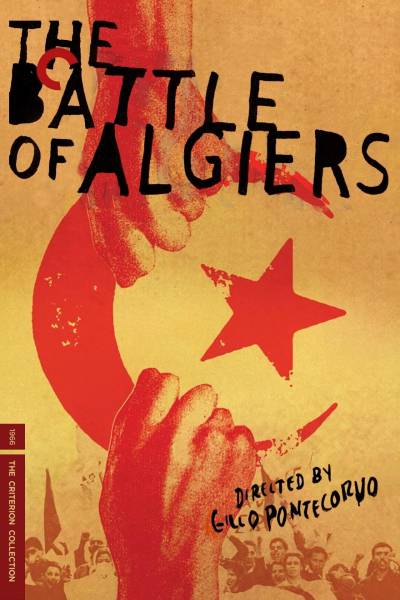 Marxist Poetry: The Making of The Battle of AlgiersMoyen-métrage – 2004Le titre de ce long métrage documentaire fascinant, réalisé pour la sortie du film Criterion Collection, est tiré du commentaire de Pauline Kael dans sa critique du film selon lequel le r&eacu…Gillo Pontecorvo est lié(e) à ce film en tant que réalisateur/trice
Marxist Poetry: The Making of The Battle of AlgiersMoyen-métrage – 2004Le titre de ce long métrage documentaire fascinant, réalisé pour la sortie du film Criterion Collection, est tiré du commentaire de Pauline Kael dans sa critique du film selon lequel le r&eacu…Gillo Pontecorvo est lié(e) à ce film en tant que réalisateur/trice -
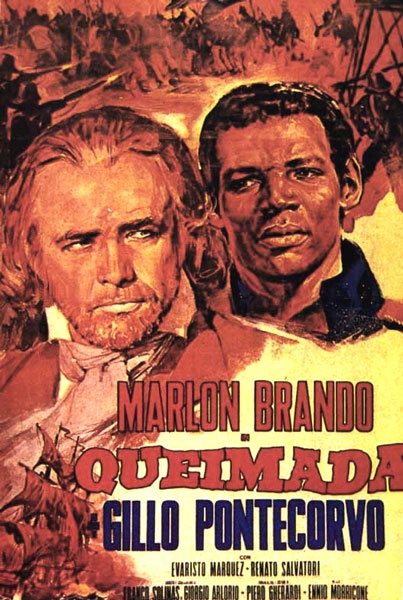 QueimadaLong-métrage – 1969En 1845, sir William Walker, un dandy aventurier, débarque sur l’île de Queimada, dans les Caraïbes, colonisée par Lisbonne. Le gouvernement anglais lui a donné mission de susciter une révolte contre l’Empire portugais f…Gillo Pontecorvo est lié(e) à ce film en tant que réalisateur/trice
QueimadaLong-métrage – 1969En 1845, sir William Walker, un dandy aventurier, débarque sur l’île de Queimada, dans les Caraïbes, colonisée par Lisbonne. Le gouvernement anglais lui a donné mission de susciter une révolte contre l’Empire portugais f…Gillo Pontecorvo est lié(e) à ce film en tant que réalisateur/trice -
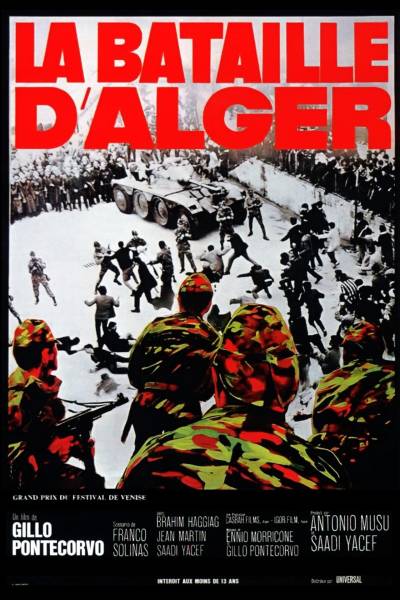 La Bataille d’AlgerLong-métrage – 1966"La Bataille d'Alger" (italien : La Battaglia di Algeri, arabe : معركة الجزائر), est un film algéro-italien de Gillo Pontecorvo…Gillo Pontecorvo est lié(e) à ce film en tant que réalisateur/trice
La Bataille d’AlgerLong-métrage – 1966"La Bataille d'Alger" (italien : La Battaglia di Algeri, arabe : معركة الجزائر), est un film algéro-italien de Gillo Pontecorvo…Gillo Pontecorvo est lié(e) à ce film en tant que réalisateur/trice -
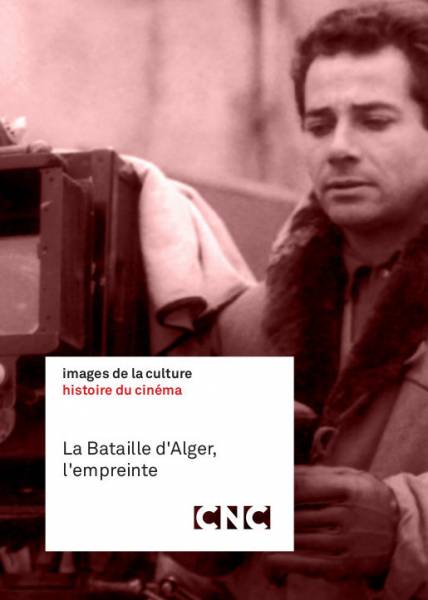 La Bataille d’Alger, l’empreinteMoyen-métrage – 0Cheikh Djemaï revient sur la genèse du long métrage de Gillo Pontecorvo, La Bataille d’Alger (1965). Par le biais d’images d’archives, d’extraits du film et d’interviews d…Gillo Pontecorvo est lié(e) à ce film en tant que personne concernée
La Bataille d’Alger, l’empreinteMoyen-métrage – 0Cheikh Djemaï revient sur la genèse du long métrage de Gillo Pontecorvo, La Bataille d’Alger (1965). Par le biais d’images d’archives, d’extraits du film et d’interviews d…Gillo Pontecorvo est lié(e) à ce film en tant que personne concernée -
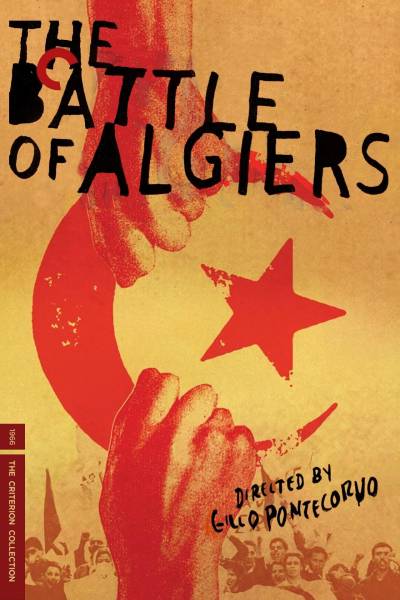 Five Directors On The Battle of AlgiersCourt-métrage – 0Ce documentaire de 17 minutes est présenté sur le DVD 3-Disc Criterion Collection de La Bataille d'Alger (1966), sorti en 2004. Un regard approfondi sur la Bataille d'Alger à travers les yeux…Gillo Pontecorvo est lié(e) à ce film en tant que réalisateur/trice
Five Directors On The Battle of AlgiersCourt-métrage – 0Ce documentaire de 17 minutes est présenté sur le DVD 3-Disc Criterion Collection de La Bataille d'Alger (1966), sorti en 2004. Un regard approfondi sur la Bataille d'Alger à travers les yeux…Gillo Pontecorvo est lié(e) à ce film en tant que réalisateur/trice -
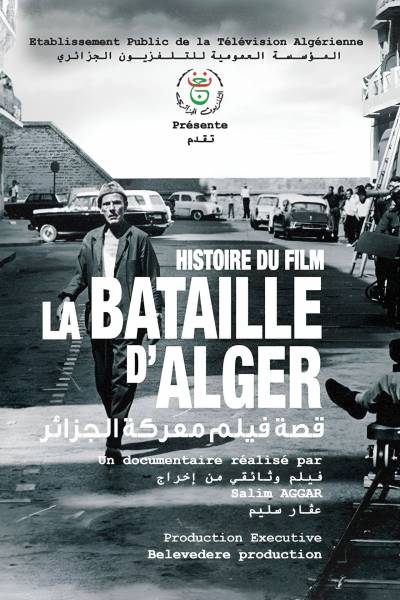 L’Histoire Du Film « La Bataille D’Alger »Long-métrage – 0Plus de cinquante ans après la sortie du film « La Bataille d’Alger » dans les salles en juin 1966, le réalisateur Salim Aggar a retrouvé au bout d’une recherche qui a dur&eac…Gillo Pontecorvo est lié(e) à ce film en tant que personne concernée
L’Histoire Du Film « La Bataille D’Alger »Long-métrage – 0Plus de cinquante ans après la sortie du film « La Bataille d’Alger » dans les salles en juin 1966, le réalisateur Salim Aggar a retrouvé au bout d’une recherche qui a dur&eac…Gillo Pontecorvo est lié(e) à ce film en tant que personne concernée
Partager :



